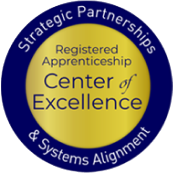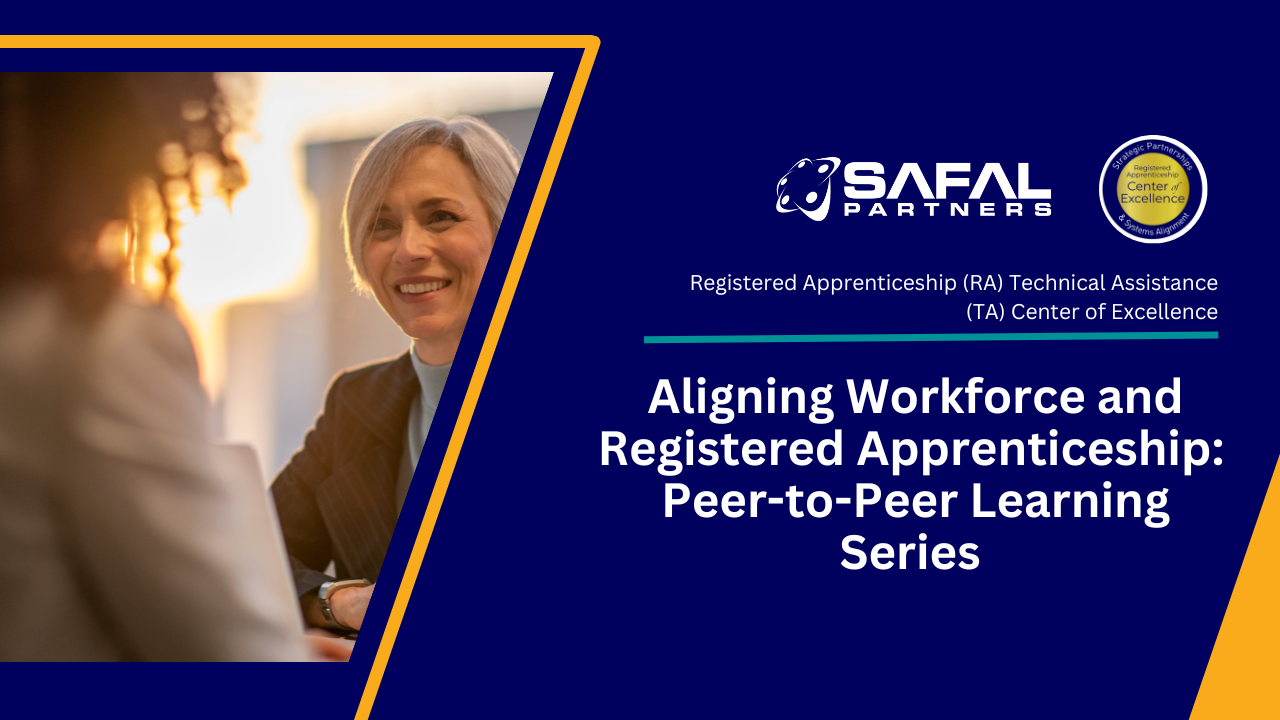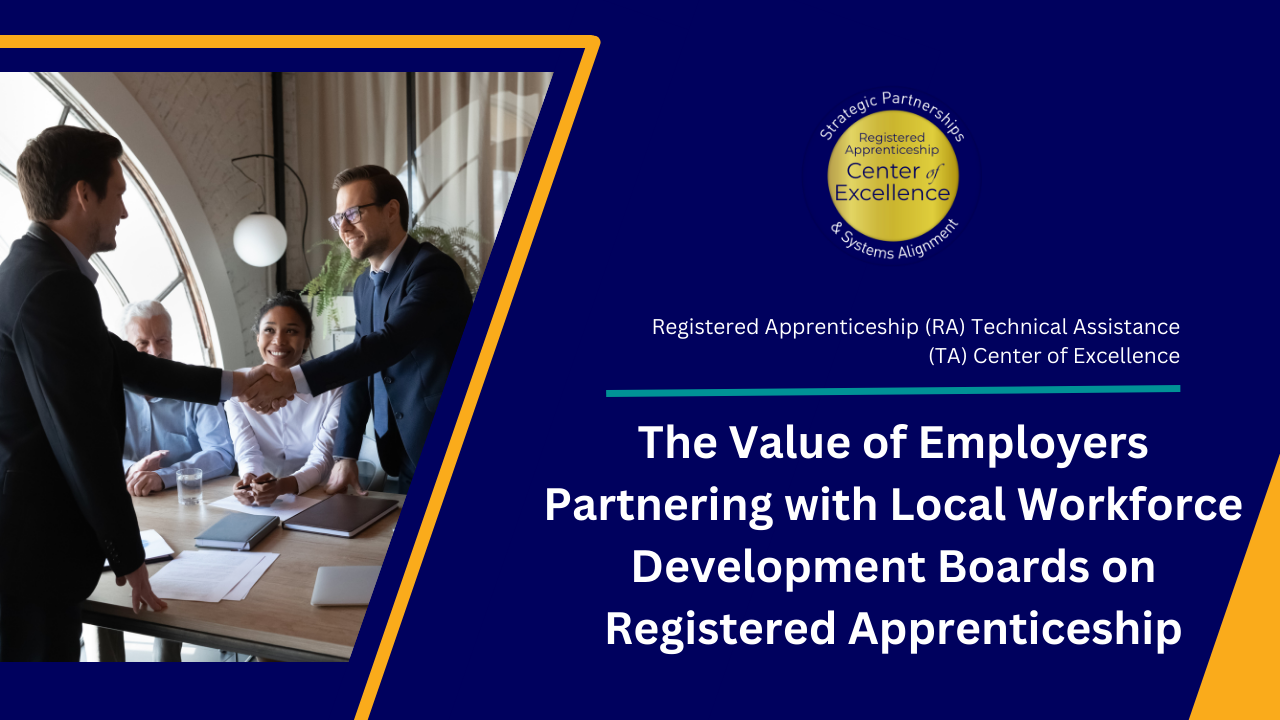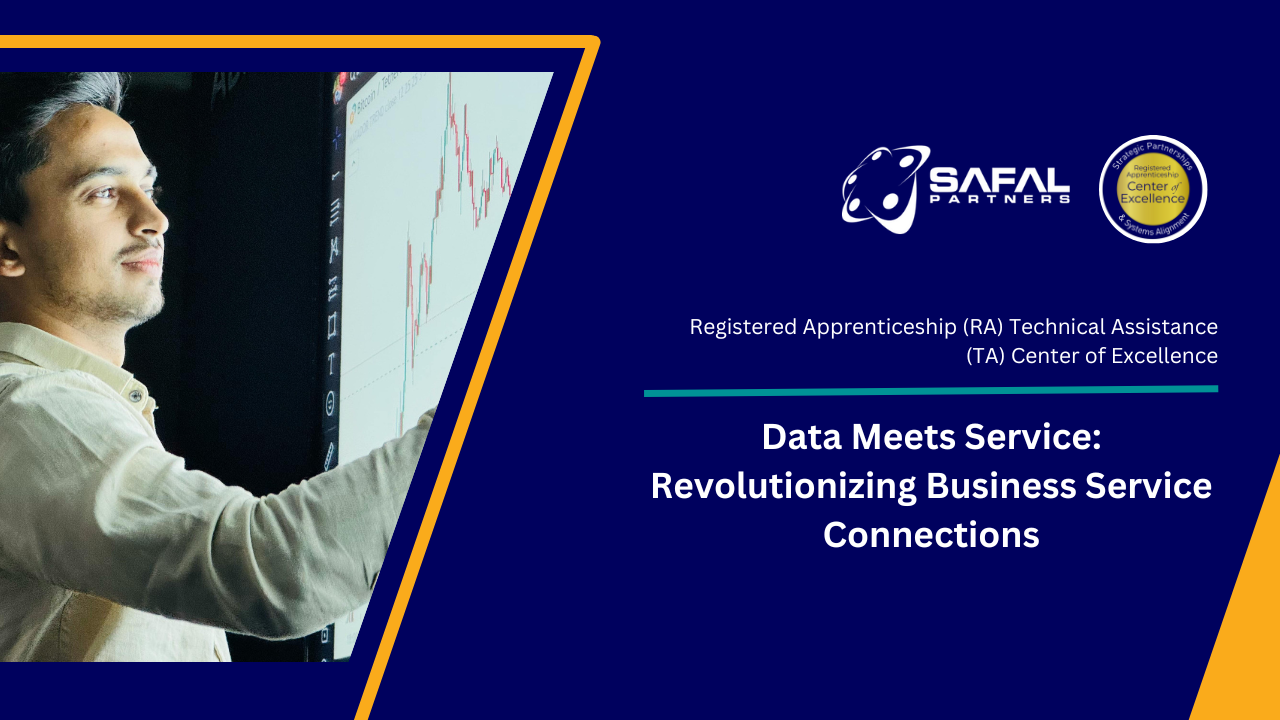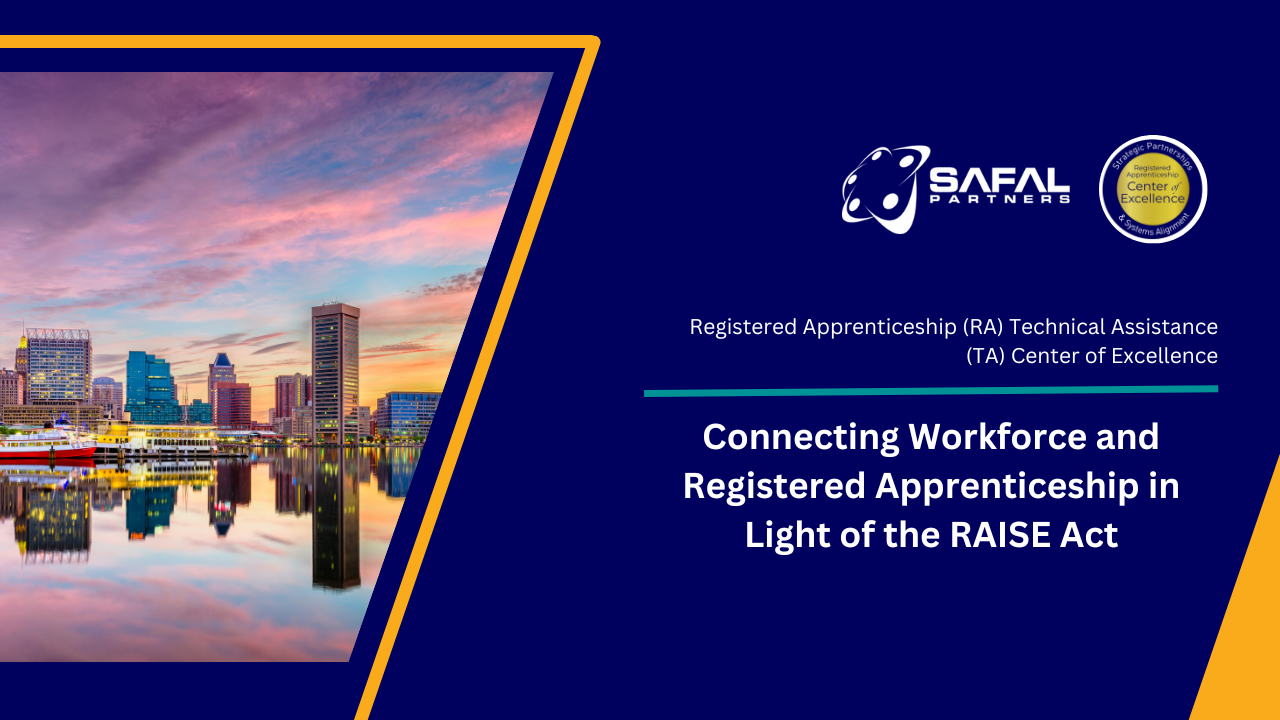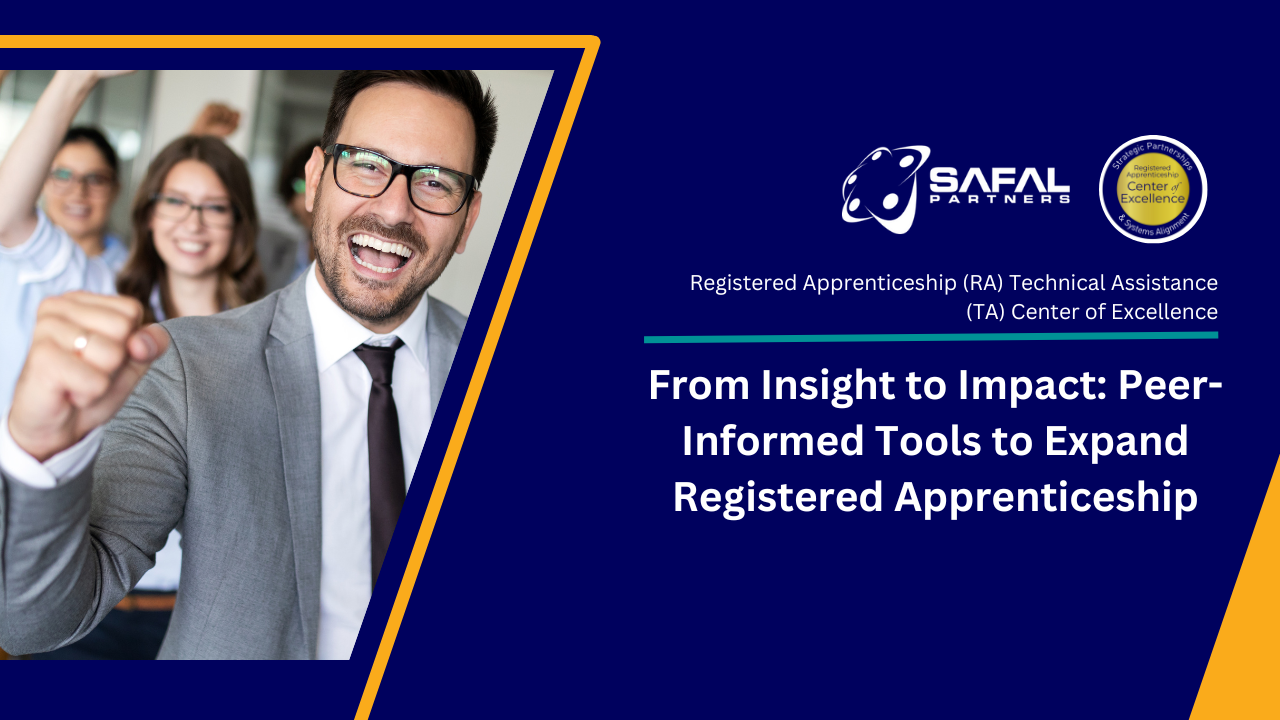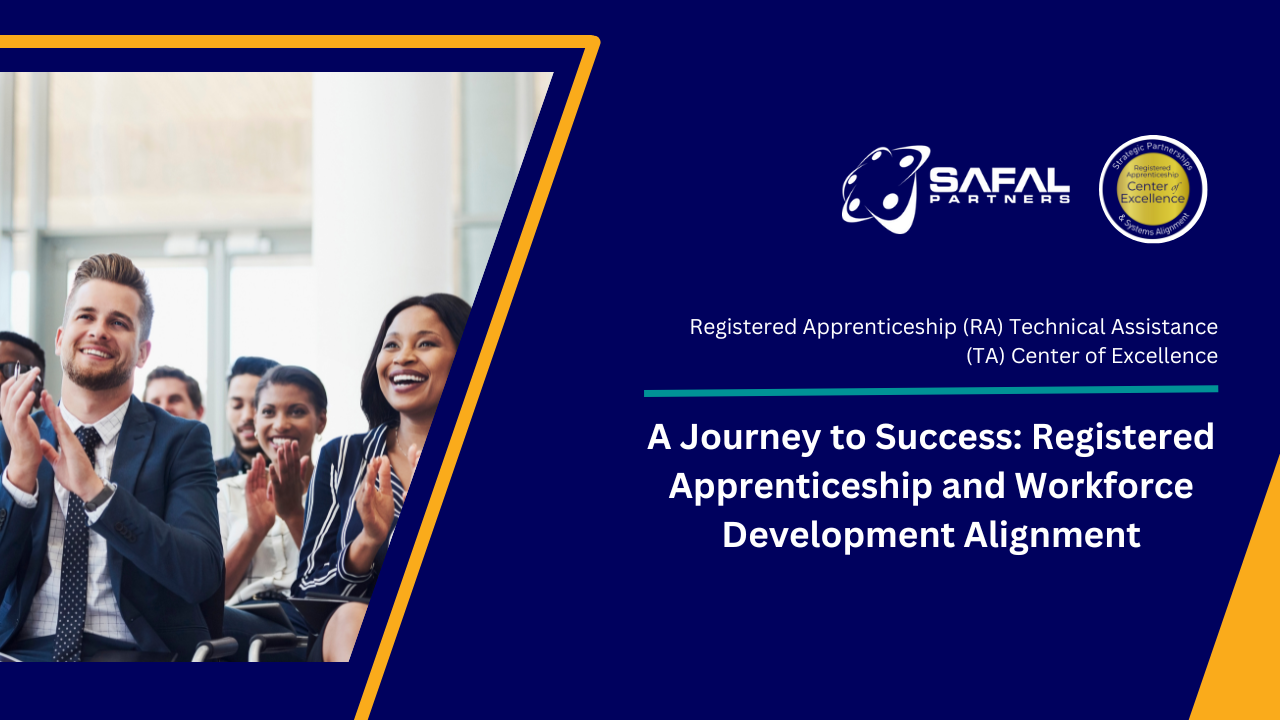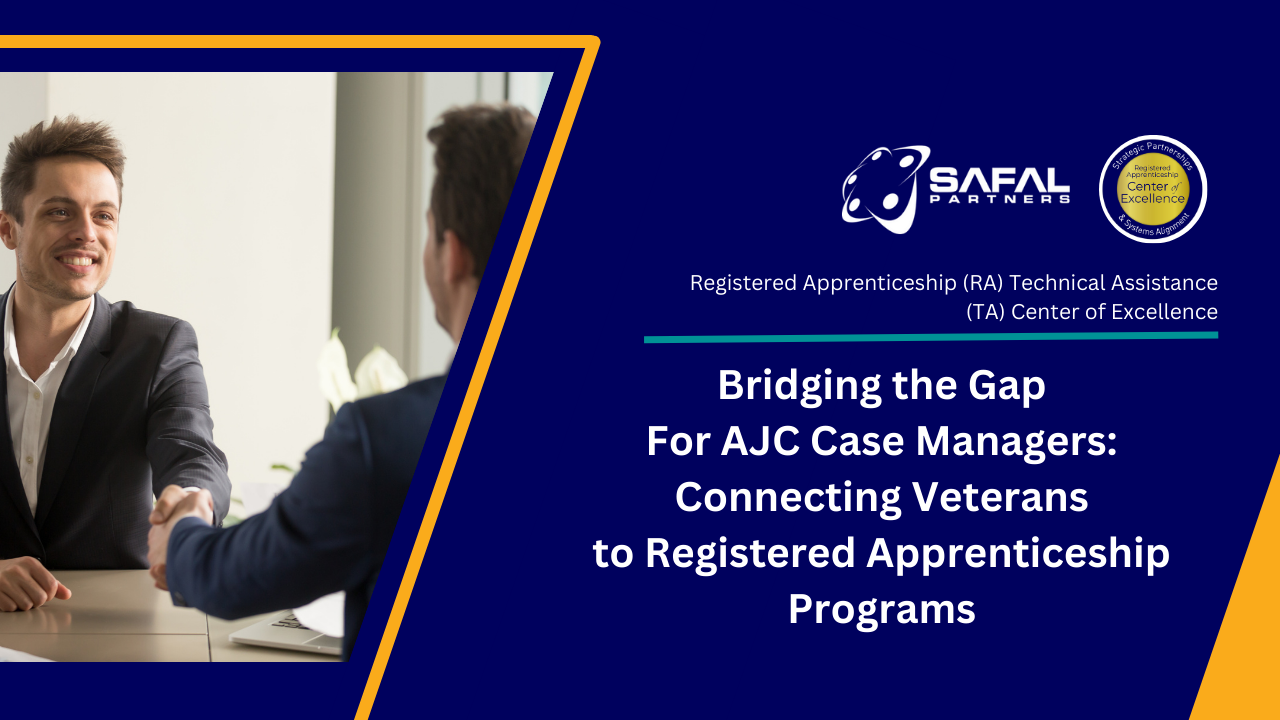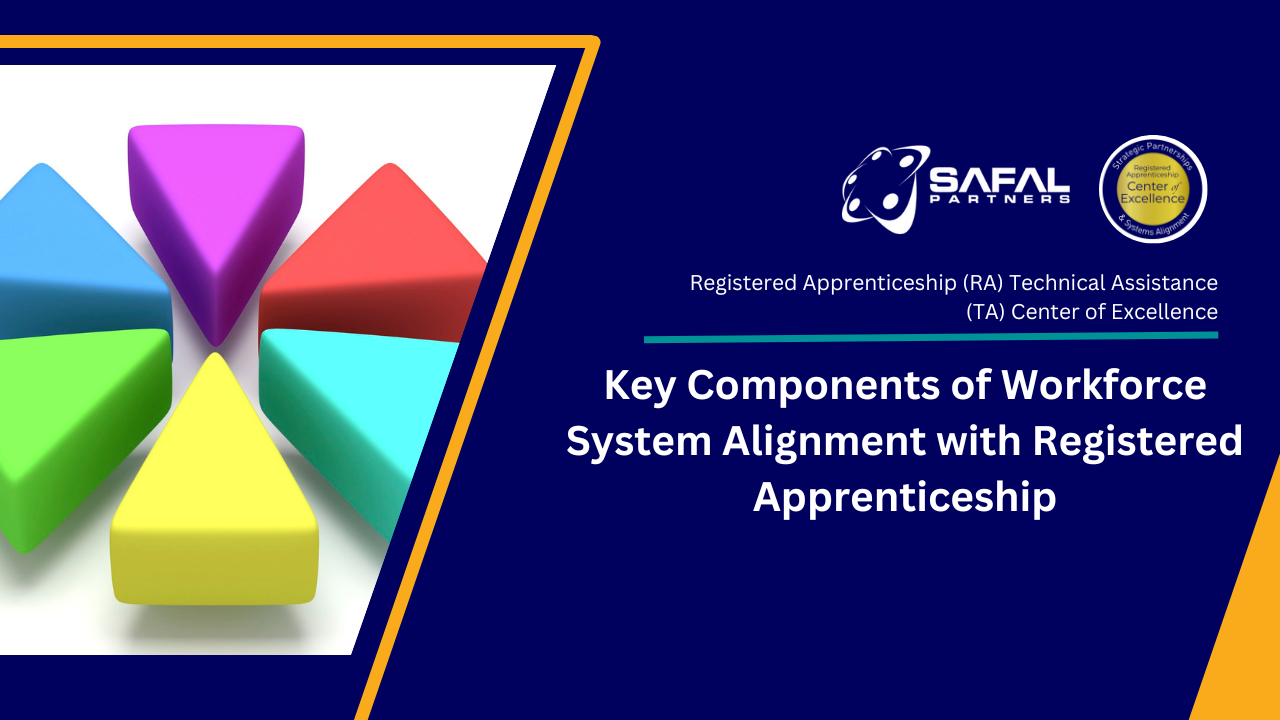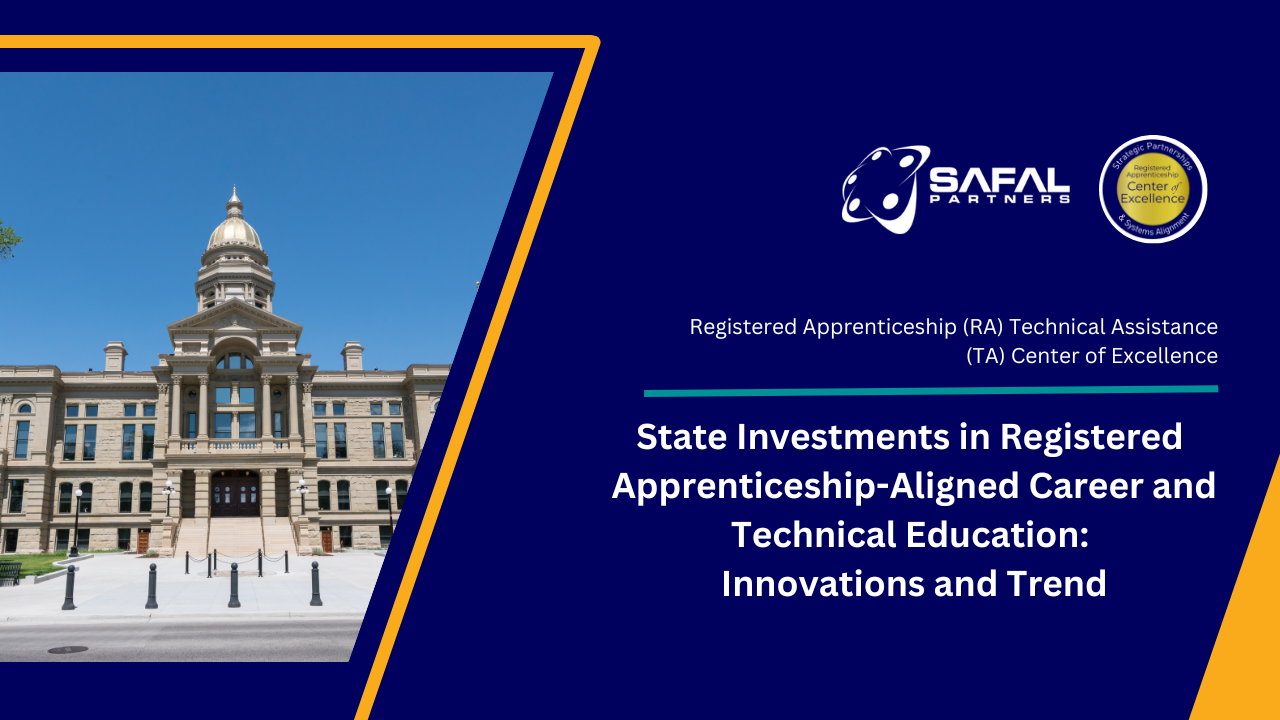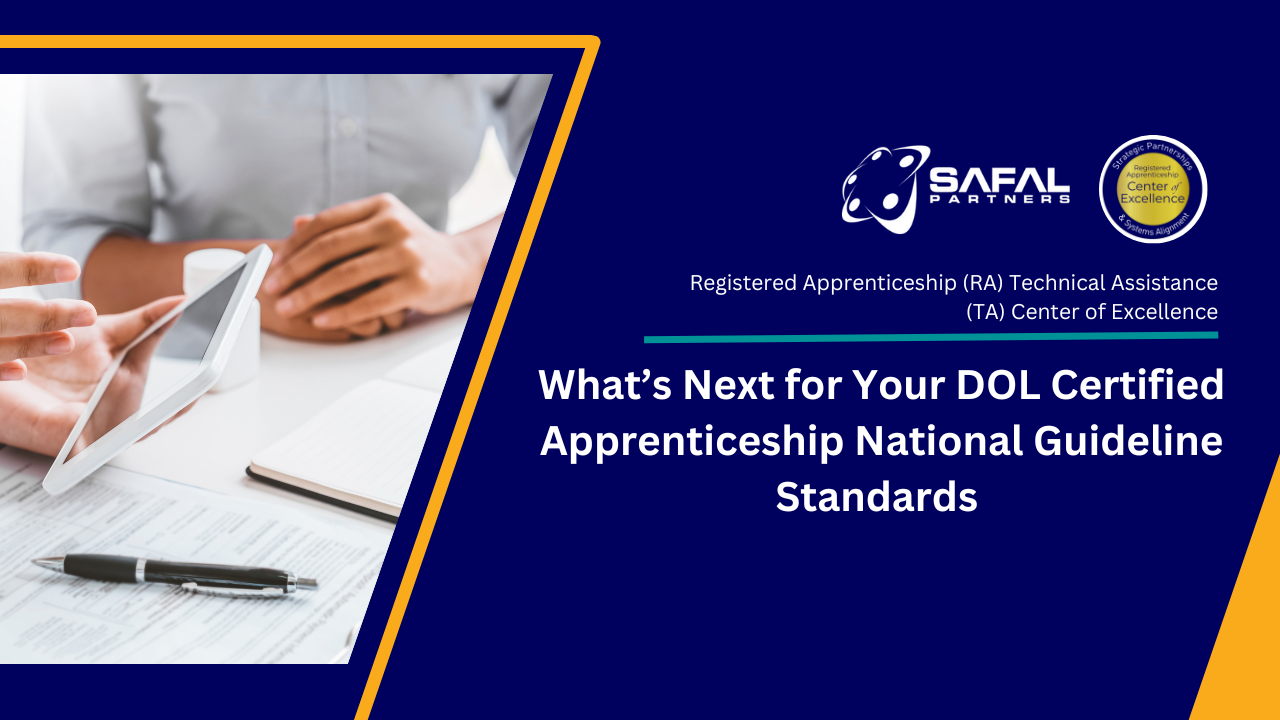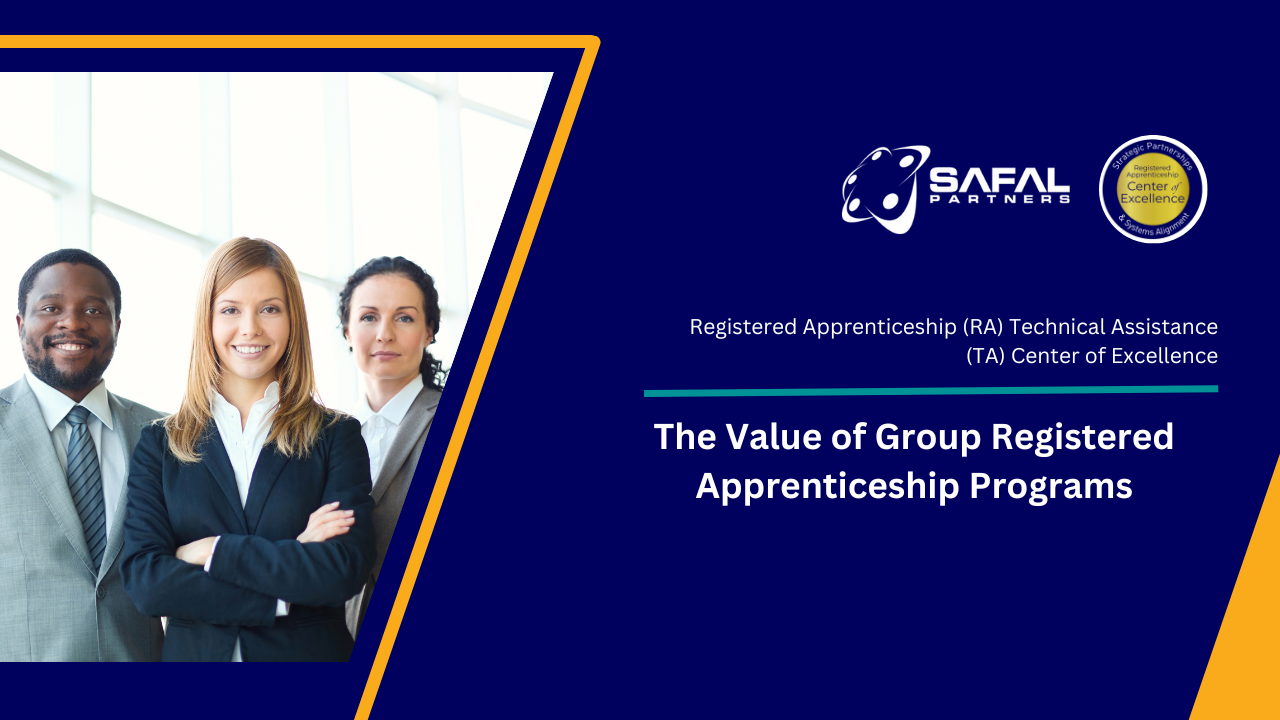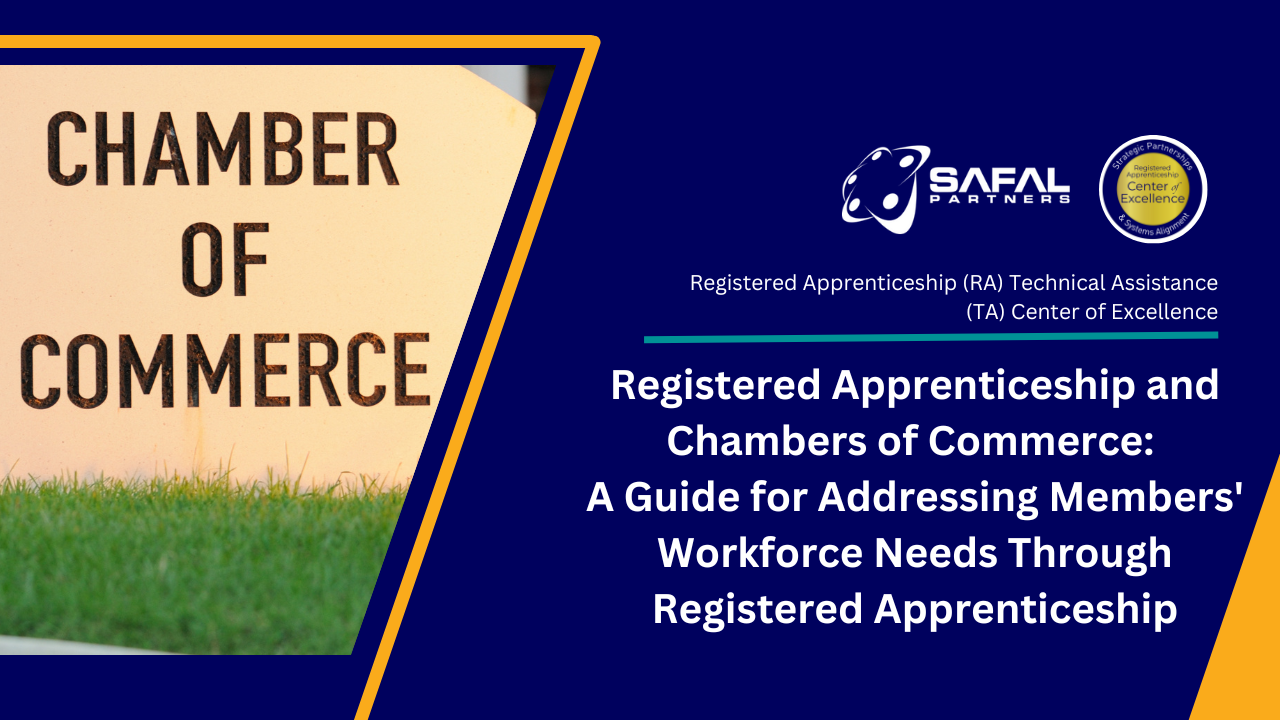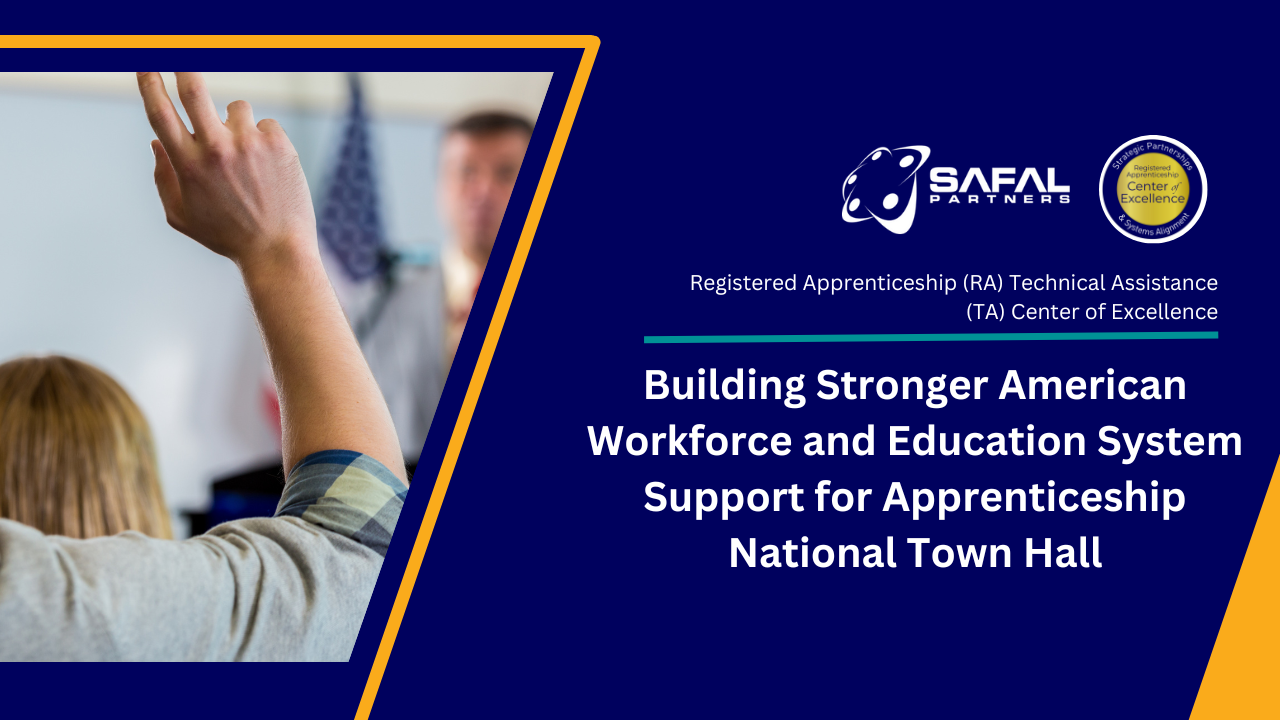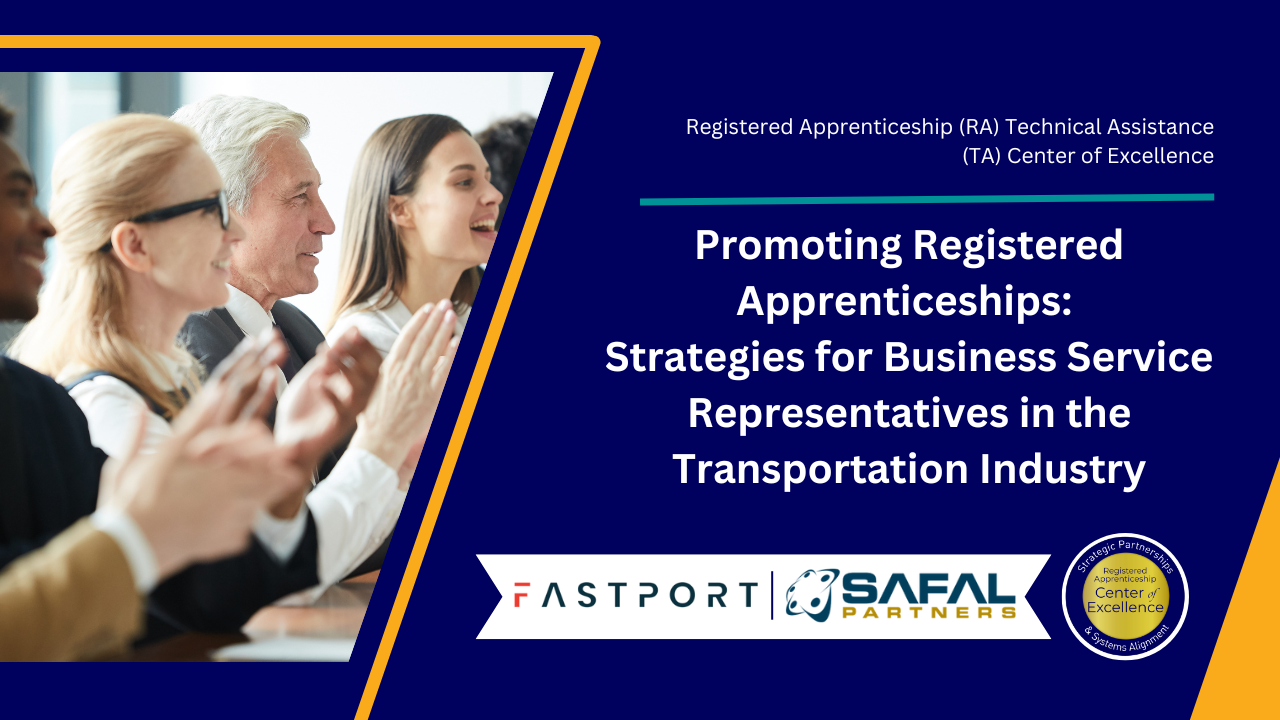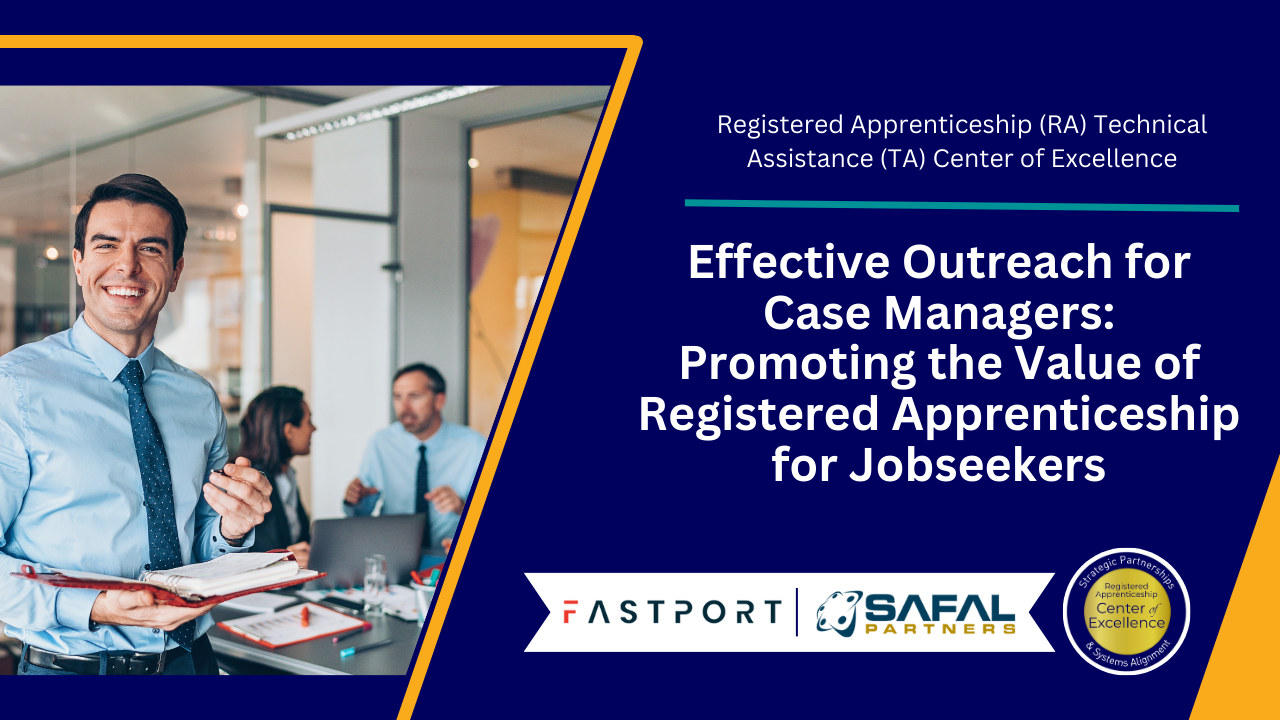In this Peer-to-Peer Learning, half-day webinar series, attendees heard directly from state leaders who have done work to improve alignment between the Workforce Innovation and Opportunity Act (WIOA) and RA. Attendees gained insight on promising practices to develop or modify state and local WIOA plans, programs, policies, and processes to increase the use of RA in supporting local employers and as a training strategy primarily for WIOA Title I Adult, Dislocated Worker, and Youth participants.
The information that was shared in these sessions is helpful to state workforce and RA system leaders and staff, local workforce development board representatives and staff, American Job Center Operators, and workforce system stakeholders, including representatives from WIOA core and partner programs.
The half-day webinar session included three, 30-minute presentations from select states that are moving the needle on system alignment, and a 60-minute facilitated breakout session where webinar attendees discussed challenges and explore solutions to increasing WIOA/RA system alignment.
Link to September 25th Webinar
